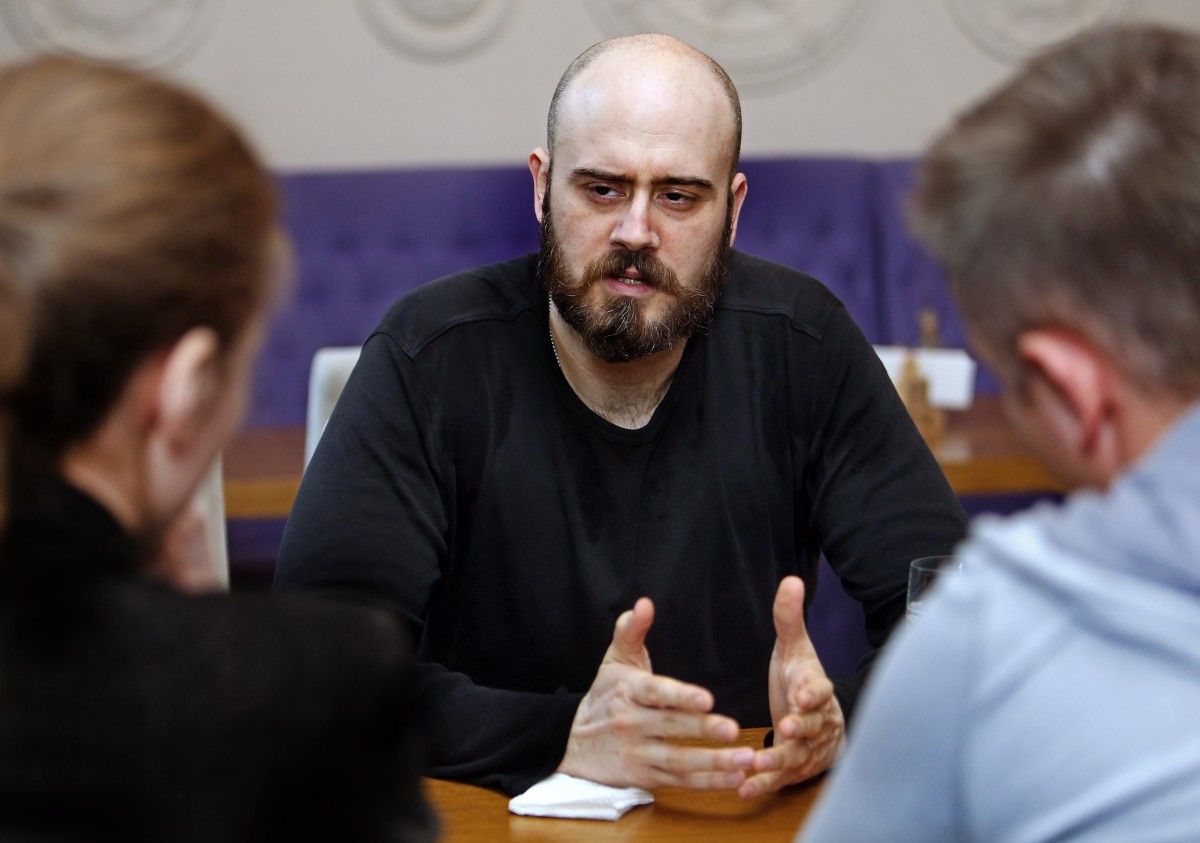
U.S citizen Jim Kovpak: [In Ukraine,] they made the law accepting foreigners to the army but they didn’t actually prepare anything to have it implemented.
The American with Ukrainian roots, Jim Kovpak, sat down with UNIAN to talk about his will to join the Ukrainian army, the differences between the Ukrainian and U.S. military, and the problems he faced on the path to achieving his goal in Ukraine.
Jim Kovpak is a pseudonym, which an American citizen with Ukrainian roots (on his father's side) asked to use in our interview. Under this pseudonym, he writes for some western media (The Guardian, Voice of America, etc.). He also created his own blog in English. Jim has lived and worked in Moscow for more than ten years, and now he wants to take up arms and defend Ukraine. In his interview with UNIAN, Jim Kovpak told how the Russians have been changed by the Kremlin propaganda, what inspired him to try to join the Ukrainian army, and how successful his attempts have been so far.
You’ve lived in Russia for the past 10 years. From your personal experience, how have the Russians changed over this period? Have any particular shifts become too obvious since the start of the war with Ukraine? How strong is the effect of the Kremlin’s propaganda?
I’ve noticed the change in the Russian attitudes since 2013, this is before the Maidan. Back then, I already noticed the growth in hostility towards Americans, towards the West. I would see examples of people, who used to be very cosmopolitan, very western-oriented, even supportive of the opposition, would suddenly start saying Kremlin talking points. I should point out again, that was before the Maidan and before the war with Ukraine.
I thought this was because of the return of Putin maybe, and also because of the opposition protests that have fallen apart, the Bolotnaya rallies… I went to some of the first protests in Moscow, to the first Bolotnaya, but I was not really closely involved with politics as I didn’t have much faith in the Russian opposition or Russian politics because people were very apathetic. So I was just trying to earn more money and get out of there.
How did you come up with an idea to travel to Russia?
I had a long interest in Russia, in its history. I first went to live in a family in Russia’s Rostov-on-Don when I was sixteen, in high school. That was in 1999. Between that time and 2006 when I moved back to Russia, I could be called a sort of a russophile. But before I moved to Russia in 2006, I was living in Prague, and I talked to some Russian people there. And what they told me what was happening in Russia with the Putin government and I suddenly learned that there was nothing positive about that government. So I reconsidered my attitude.
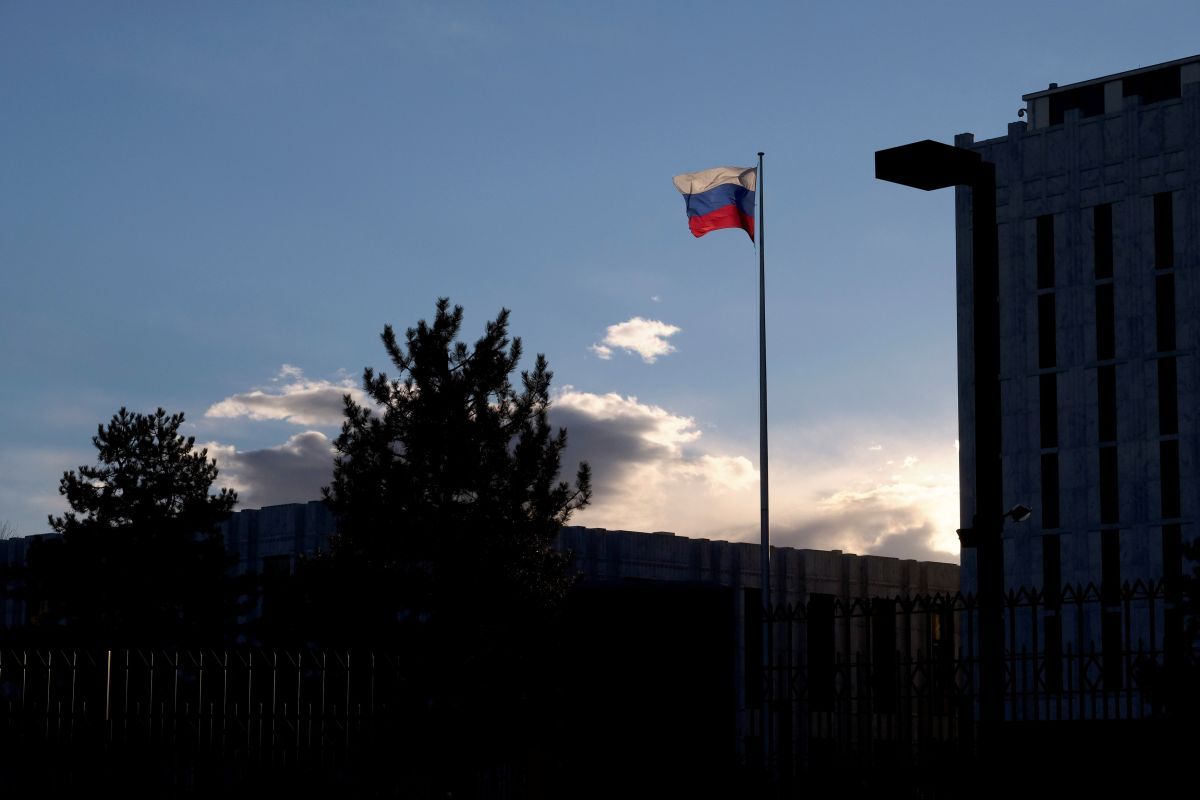
What did you do for living while in Russia?
Most of the time I lived in Russia I was working as an English teacher. That’s what I was doing in Prague – I got a certificate to teach English. In 2006, there was a boom time. Everyone wanted a native speaker. This pretty much explains why I’ve lived for so long there. It’s an easy job, the companies take care of you, provide you with accommodation. Some jobs I’ve done at home paid more but they don’t treat you as well.
For the last three years, I’ve been working as a journalist. I started as a blogger and then I got in the journalism. 2015 was the first time I visited Ukraine’s Donbas. I’ve been there three times throughout that year. My last time was a trip to Avdiyivka, which left the biggest impression.
According to your observations, what is actually going on in eastern Ukraine? Is it a “civil war,” the rebellion of “miners and farmers,” as Russian propaganda portrays it?
In general, I refer to it as a Russian invasion.
While in Russia, weren’t you afraid to openly call out Russian occupation of Ukrainian territories?
Well, first of all, I wrote under a pseudonym anyway, and y writing was only in English. Moreover, my blog did not start out in 2013 as a political thing. It was initially about debunking some myths about Russia But once Crimea’s annexation happened, once Russia went on this global propaganda offensive, my blog became more political.
What are those myths?
The myths range from simplistic things to more global issues. One thing is that Russia’s trying to portray itself as as some kind of balance against supposed U.S. hegemony. In fact, Russia is just as imperialist.
The global propaganda that RT and Sputnik put out appeals to different groups at the same time: to the left wing side they act as if they oppose capitalism, and of course, they usually appeal to the far right, telling them that Russia is about spiritual, traditional values, or “dukhovnie skrepy” as Russians call them.
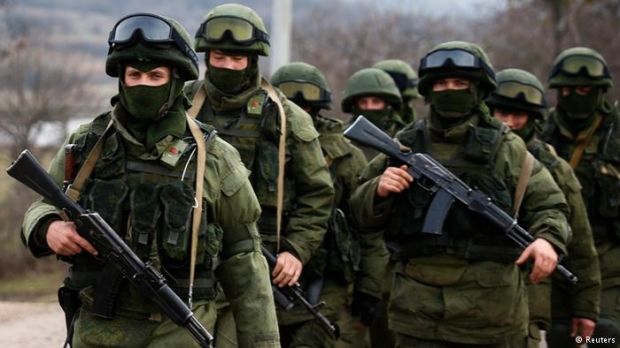
On your Facebook profile, I saw pics taken in Slaviansk...
That was the first time I visited Donbas in 2015. I was in Slaviansk on May 9, I also went to Kramatorsk, Bakhmut, and Kostyantynivka. I was just trying to see things for myself and talk to some local people.
What were your impressions from those contacts with the locals?
On that trip, in 2015, I don’t remember witnessing any really pro-Russian attitudes. There were these two women though, in Kostyantynivka, with whom I talked about the Russian invasion. Bu the message I got was that in their understanding, it was the U.S., the CIA, who meddled in Ukraine’s affairs and set up the Maidan. It seemed really odd to me because, come on, have any U.S. troops occupied part of Ukraine?
I will say that the second time I visited Donbas, I met only two older women with such attitude – one person in Avdiyivka and the other one was in Kostyantynivka – who were clearly pro-Russian. And there was also our local driver with the same way of thinking.
During your first visits to eastern Ukraine, have you had an opportunity to meet Ukrainian troops? I saw a picture you posted where you hold a firearm.
Probably that was a picture taken at a checkpoint. Indeed, I managed to speak to both Ukrainian regular troops and volunteers.
Back then, did you harbor an idea to join the Ukrainian forces?
The first time, it seemed to me this was something I wouldn’t even think of. It wouldn’t have been legal at that time, and I was just expecting to get a teaching job in Iraq.
I will say though that the first time I went there, it did certainly personalized the conflict more, it made me hate the Russian government even more because of the arrogance of the Russian government who says Russia is out there to protect Donbas people from some kind of a threat. But when you see it with your own eyes, you understand that the only actual threat right now is Russia. You also understand that the last thing the Donbas people need is war.
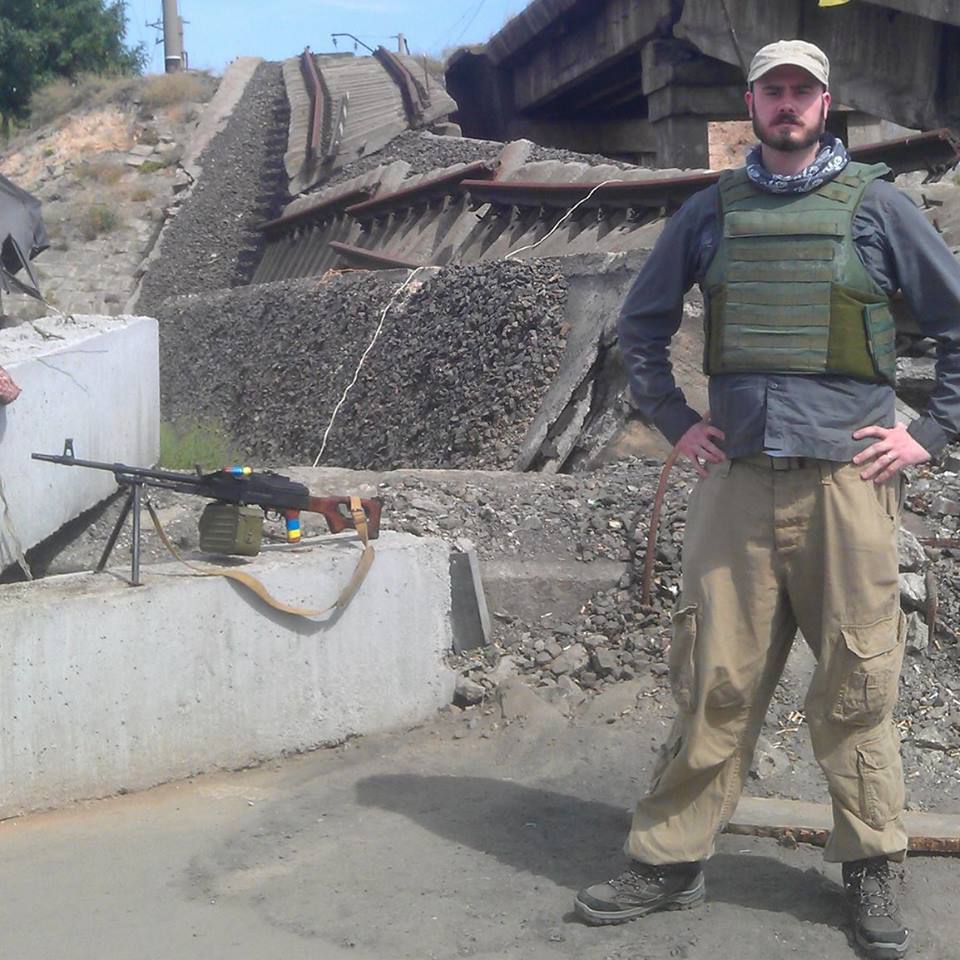
What was the last straw that pushed you toward deciding to try to join the Ukrainian forces?
The second time I went back to Donbas, my feelings became stronger, all of it left such an impression on me. And at the time, my financial situation wasn’t very good because of the lack of good job offers. And about that time I saw more news coming in about Donbas hostilities… I started thinking that in Russia, I’ve been doing something that I didn’t really want to do.
I could also go back to the U.S. and do some job but I thought, maybe I should do something that I really care about…
You are saying that you want to do something really important. But why are you choosing the military path? After all, you could continue reporting and cover the conflict in the media…
As a journalist, I’ve been fighting in the information war for a while but I just feel that I have to do more. Taking up arms is something I can do.
Do you have any military experience?
Yes, not in combat, but I was in the U.S. army. Unfortunately, I've never been deployed anywhere. Now that I’m older – I’m in my thirties now – I regret that I was kind of denied the right to serve my country even though I was actually in the army, and I feel like in a personal level, at least I can serve Ukraine. Mainly, my reason is ideological. The Russian system needs to be opposed and they have to be stopped.
Could you please tell us, what you initially did to apply for joining the Ukrainian army?
I made a decision around June of last year. I decided I needed to go to Ukraine to find out more information because, of course, it’s dangerous to communicate between Russia and Ukraine on such issues. I came in the summer and I went to a random conscription station, “voenkomat.” I talked to an officer who was very helpful and understanding of my situation. He told me to come back to Ukraine whenever I had more time, he also briefed me on the first steps I needed to take, like bringing a notarized translation of my documents, and so on.
In February 2017, I came back to Kyiv, having the required translations of documents on me. I went to the same voenkomat but there was a different officer meeting me this time. He invited me to the medical check the next day. It all started off pretty well because I have good vision and good hearing. However, a senior doctor noticed that I have psoriasis. Then another doctor said that I had flat feet, which I know I do. They said they can’t take me to the army because of these two diseases.
At first, one of the doctors said that I could go to some hospital and have a doctor look at my psoriasis and say if it’s maybe limited than it should be fine for me to join the army. But then the officer assured me that they absolutely couldn’t take me with flat feet and psoriasis.
My first thought was that it was strange. There is the war going on, an invasion, occupation, and they’re worried about flat feet and psoriasis… In most modern militaries, they don’t even consider these conditions a problem at all. Even Navy Seals take people with flat feet.
After talking to some friends, the general impression I got was that it wasn’t just about bureaucracy, they just probably weren’t prepared to deal with a foreigner. They made the law accepting foreigners but they didn’t actually prepare anything to have it implemented.
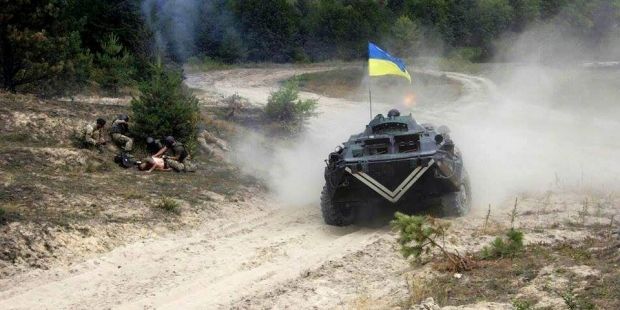
Do you think maybe someone wanted you to bribe them?
Obviously, that seemed like something that would be possible but the whole point of fighting here is to try to change things, not support corruption. Anyway, no one actually asked me for any bribes. It is probably better that they didn’t take me. Having talked to my new friends here, I figure out that the draft station could have sent me anywhere once I signed my contract. I could end up somewhere in Uzhgorod instead of being deployed to the frontline in Donbas.
Do you consider joining any of the volunteer battalions?
Actually, last week I had an interview with a representative of one of such battalions and hopefully, next week, I’ll have a chance to meet their commander. I’m not sure if I should mention which particular battalion I am looking at right now. I can only say that now it’s officially part of Ukraine’ Armed Forces.
I also understand that in the meantime, I could help some of those units, maybe by writing something for them or helping them with training new recruits… I’d be happy to meet other officers and commanders so that when I do go to a certain unit, these people that have got to know me could say that I could be trusted.
In your opinion, what are the main differences between the American army and the Ukrainian Armed Forces, except for medical checks?
There are a lot of differences. I think one of the main problems of the Ukrainian forces is the legacy of the Soviet army. One of the biggest differences is that in the U.S., we have not had conscriptions since 1973.
There is this term, a Citizen Soldier, and the idea is that at the end of the day, when you are not deployed, you go back to a normal life. Soldiers go to their houses… In many other armies, in Europe, they have the soldiers always live in the barracks, and they’re expected to live that kind of life while they’re in there.
Besides, when I was in the army, there was so much emphasis on the uniform regulations and little trivial details. If you wear a certain type of jacket with no gloves, this is seen as some sort of blasphemy.
Here, we see that soldiers of regular units sometimes have different uniforms, we see guys with full beards and things like that.
Considering the fact that you wear a beard, you might enjoy such “freedom.” You won’t have to shave…
I hope I won’t because I look much better with the beard. Without it, I look too young. By the way, some of my friends here say that I have “Cossack” mustache.
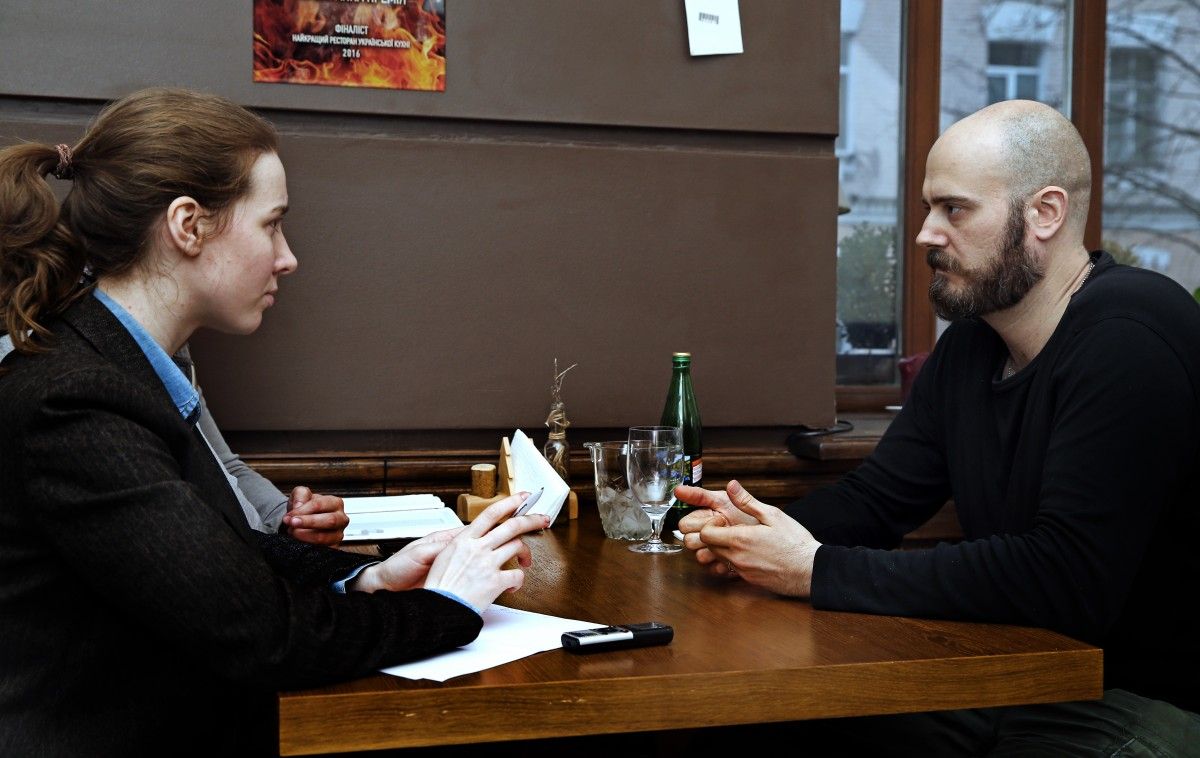
When the authorities talk of reforming the Ukrainian army, they often speak of the need to adjust to NATO standards. Do you think our army is getting closer to NATO standards?
I think that is a long way to go. I think that’s good that they’re training with western instructors from the U.S., or Britain… However, I wish that they were just trained by one country because I could probably find a lot of differences between the American and British way of training.
However, I also realize that NATO can train Ukraine to have a conventional army. But a conventional army is limited by resources. I think that Ukraine, in order to survive, should have unconventional forces.
What do you mean by that?
For example, there is Switzerland. They’ve always had to deal with the fact that they are a small country and if someone really wanted to invade them, their army would not last very long conventionally. So first of all, they have a reservist army, which basically all males have to join, men keep their weapons at home.
There was a theory called “Total Resistance,” which a Swiss officer developed. It’s a system of guerilla warfare for Switzerland. The idea was that it was based on the fact that if they’re invaded, their army would try to delay the invasion for as long as possible. And while they did that, the civilians would set up partisan networks, and the idea was that they were going to resist until other allies of Switzerland could come and help them.
The reason it was called “Total Resistance” was that a lot of it, on the part of civilians, was not based on traditional partisan tactics – violent sabotage or blowing up trains. It was based on the idea that every citizen can resist in many different little ways. For example, if occupying soldiers come to a restaurant, people serve them very slowly or don’t serve them at all; if the occupiers are operating a post office, the employees can deliberately lose their mail; if they’re operating a laundry service, the staff can ruin uniforms…
The important part of the theory was the idea that the regular soldiers, when their units are defeated in battle, they try to retreat into the wilderness and they link up with the civilians’ network.
Of course, that’s an old theory, and they’ve stopped following it since 1960s. However, it’s an interesting thing to study.
Do you suggest that the Ukrainian civilian population in the country’s east has not resisted and is not resisting enough the Russian aggression?
At the moment, the civilians are not prepared for such resistance, but they should be trained. If Ukraine is going to keep defending itself from Russia, which is a much bigger opponent with much bigger resources, it doesn’t matter how, but you have to have that resistance.
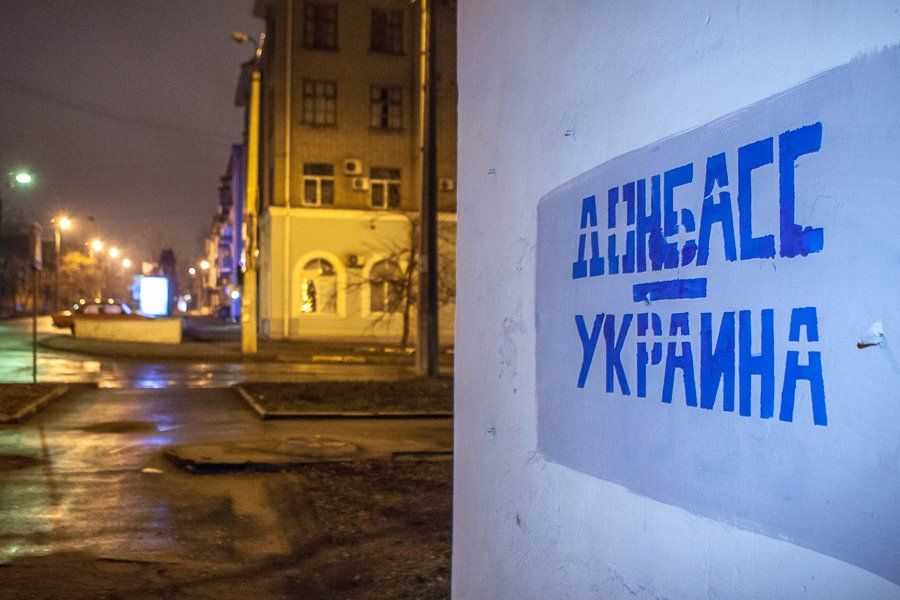
You can get inspiration from Israel where both men and women serve.
I should emphasize that both men and women, senior citizens and minors, all of them should take part in resistance. And I don’t mean child soldiers. I’m talking about total resistance I’ve mentioned.
In the framework of this concept, should Ukraine do propaganda targeting the temporarily occupied territories of Donbas?
I think that’s the most controversial part because I am not alone in this – many foreigners that have lived here for many-many years recognize that the Ukrainian government is very bad at PR. And many feel that a lot of people here don’t understand the concept of global information war, they don’t realize that they’re losing it.
The Russians don’t really understand the rest of the world very well but they do understand this information war, they do understand the global audience, and they know what to play to different audiences and what messages to send. Despite the fact that Russia doesn’t have an ideology today, it still has their propaganda aimed at people who are ideological. What that means is that Russia has people spreading their propaganda, or basically working for them, without paying them, because those people agree with the messages Russia is sending them.
There is also a problem with those I name the “so-called allies” of Ukraine. These are the people who in some cases not so much for Ukraine but only anti-Russian for some reason. Or there are people who support Ukraine because their countries’ governments have their own interests in Ukraine.
What I worry about is how we get people, who are truly passionate, to support Ukraine. I think Ukraine must become associated with some kind of a bigger, universal idea so that people will support you because they support the idea. Now, unfortunately, there is no such idea.
What do you mean by a global idea?
I understand there are some people in Ukraine who have their minds set in that mid-twentieth century or early 20th century nationalism. I think, eventually, they’re all going to have to choose either they stick with their narrow-minded, small Ukraine, or they wake up, broaden their horizons, and win it. If you stick with those old, outdated modes, then you will never be able to beat Russia. But if Ukraine starts using another strategy, something that Russia does not understand, they’ll begin to fear.
Now, let’s talk a bit about Ukraine’s allies. As a U.S. citizen, do you think Washington pays enough attention to the Ukrainian issue?
Not even close. Going back to the Obama administration, one thing that irritates me is that Obama repeatedly said that that there was no military solution to this conflict. Apparently, the Russians believe that there is a military solution, because that’s what they’re doing. And what is worse is that I think, Obama missed a great opportunity to humiliate Putin and end all of this very early in the Donbas situation. Putin made a very big mistake when he had his forces invade Donbas and he claimed that they were not Russian forces. That’s when Obama could have said that if those are not regular Russian forces but just local insurgents, the U.S. is going to help its ally, Ukraine, to deal with this local insurgency by sending a brigade. I believe, in this case, Putin would not have fought, he would’ve just pull his forces out.
In fact, if you look at the analysis of the Crimea annexation, they were extremely cautious throughout the whole thing. The Ukrainian forces did not open fire at “unidentified little green men.” Of course, one of the reasons the Ukrainian forces didn’t fight back was that the western leaders, including the U.S., were telling them not to provoke Russians and not to resist physically.
Besides, the U.S. introduced stronger sanctions against Moscow only after the Russians took down a civilian airliner.
Now, with the Trump administration, it’s not just because Trump’s strange relationship with Russia but because he is so incredibly incompetent, that no one can focus on the U.S. foreign policy. And I think this is the way that Trump helps Russia more than anything. The rest of the world is looking at what’s happening in the U.S., and that’s what Russia wants – to distract the world from what it’s doing. We’ve seen recently how the U.S. made a statement on how they’re not going to lift the sanctions until Russia returns Crimea, but it’s just staying with the status quo. They’re probably not going to do more for Ukraine.
Iryna Shevchenko, Yevgeny Matyushenko

